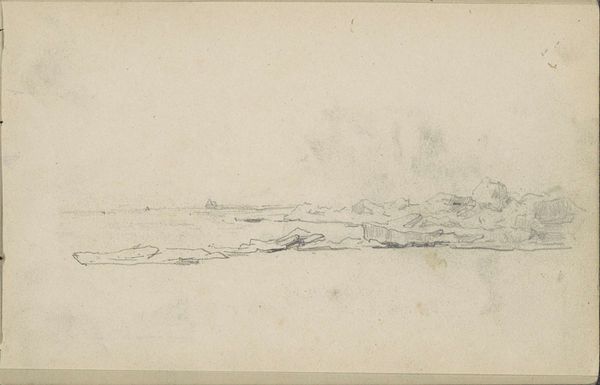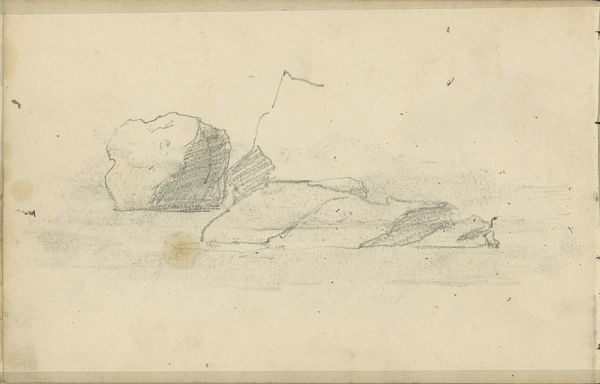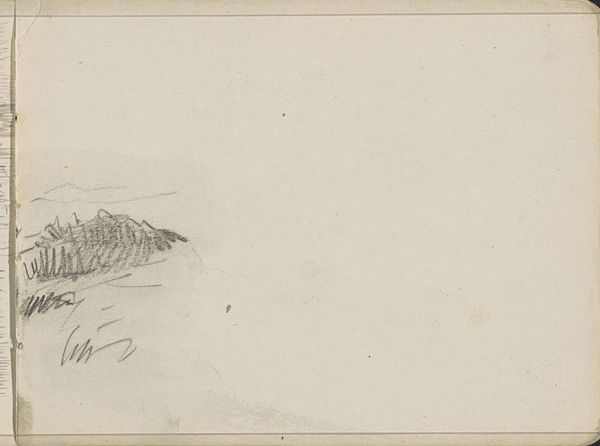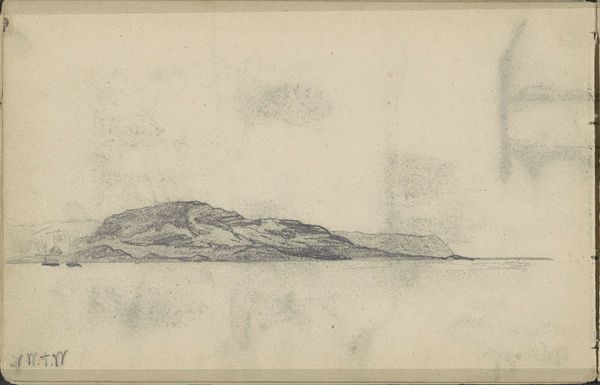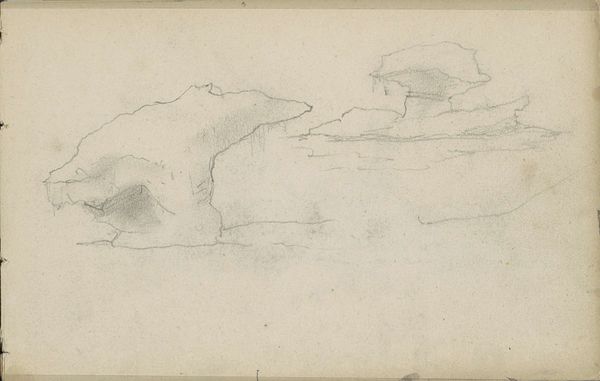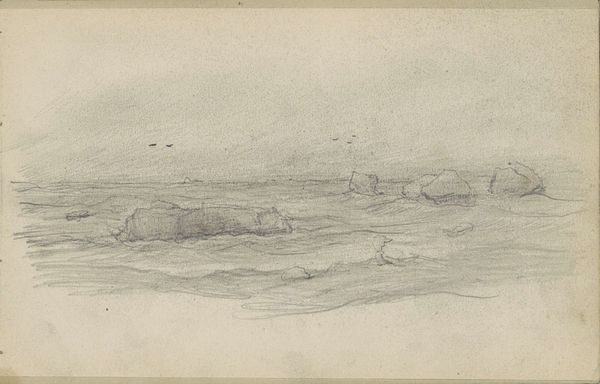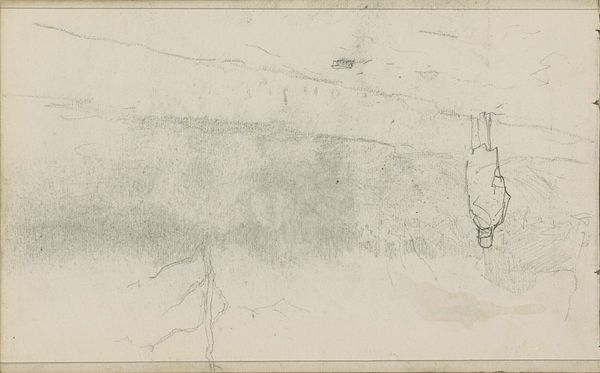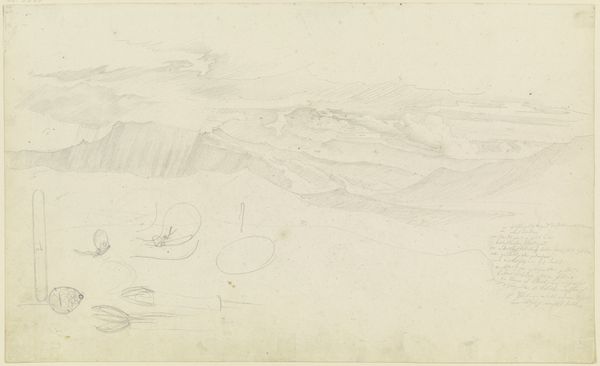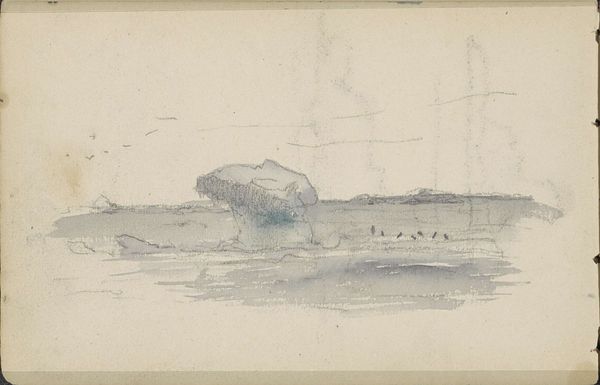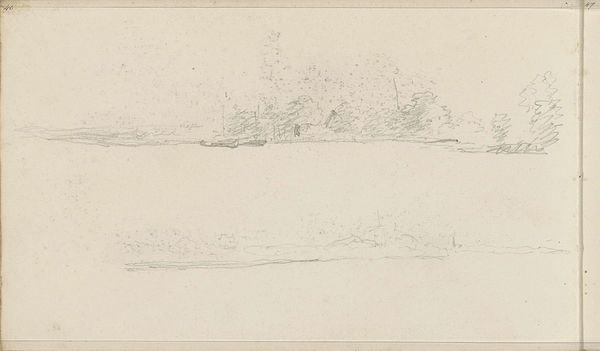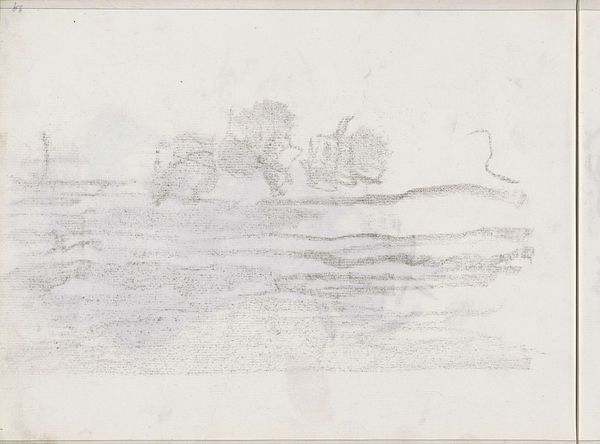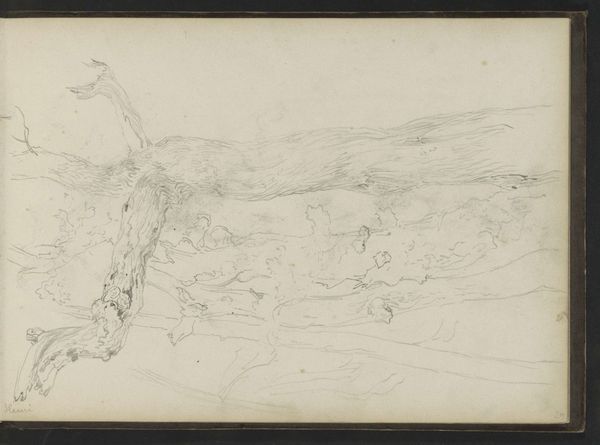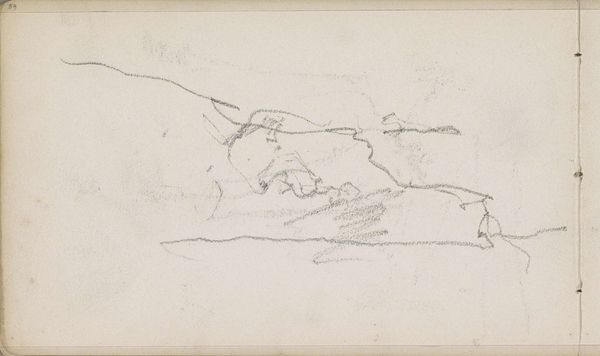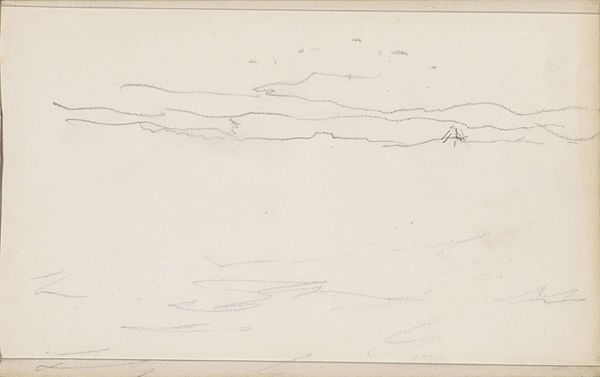
drawing, paper, pencil
#
drawing
#
pencil sketch
#
landscape
#
paper
#
pencil
#
realism
Copyright: Rijks Museum: Open Domain
Curator: Looking at this muted sketch, one immediately feels the chilling stillness of the Arctic. Editor: You’re right, it has a sparse feel. And knowing this piece, *Ice Floe in the Barents Sea,* comes to us from Louis Apol, a Dutch artist working in 1880 using pencil on paper—the materiality aligns perfectly with the subject matter. A drawing allows for a certain vulnerability and immediacy, reflecting the fragility of the scene itself. Curator: Exactly! There's a real sense of capturing a fleeting moment. Icebergs carry potent symbolism. Often, they represent hidden dangers, emotional coldness, and isolation. Think of their imposing presence juxtaposed with their vulnerability to melting, mirroring perhaps our own emotional states and the transience of existence. Editor: But consider how Apol actually *made* this image. He would have chosen a specific type of pencil and paper to achieve this effect. Think about the graphite itself – where did that come from? Who mined it? And the paper? The production itself becomes a silent actor in conveying the starkness and industrialization necessary even to render this image of icy isolation. Curator: That is an interesting counterpoint; it adds another layer of complexity. This scene initially communicates a sense of being remote and untouched, yet, you remind us of all of the labor that’s hidden within its creation. It causes me to question whether true untouched landscapes ever existed, or can exist. Editor: I think that the piece reminds us how easily a thing can appear natural when, really, the entire landscape of art, its materials, and patronage is actually social and contrived. What feels like an authentic depiction of nature here relies on extensive labor to produce. Curator: Well, examining this simple pencil sketch of an arctic ice floe reveals more than initially meets the eye. The emotional landscape mirrors perhaps deeper concerns of mortality and change. Editor: Yes, and that even the simplest depictions of untouched landscapes carry with them embedded stories of production and the often invisible human element.
Comments
No comments
Be the first to comment and join the conversation on the ultimate creative platform.
